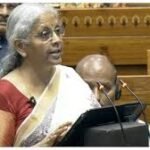Cyril Ramaphosa President again, now as a coalition leader, marks a significant shift in the South African political landscape. This development holds considerable implications for the nation’s stability, policy direction, and governance. The dynamics of coalition politics, combined with Ramaphosa’s leadership, present both opportunities and challenges that will shape South Africa’s future.

Political Stability
The transition from a single-party dominance to coalition governance introduces a new layer of complexity to South African politics. Historically, the African National Congress (ANC) has maintained a strong grip on power since the end of apartheid. However, declining public support due to corruption scandals, economic challenges, and internal party conflicts has eroded its majority.
Ramaphosa’s ability to form a coalition government indicates his political acumen and the willingness of smaller parties to collaborate. This coalition is likely composed of ideologically diverse parties, each bringing its own priorities and constituencies. While coalition governments can lead to greater inclusivity and represent a broader spectrum of the electorate, they also pose risks to political stability. Disagreements and power struggles within the coalition could lead to policy paralysis or frequent changes in government.
Economic Policies
One of the most critical areas impacted by Ramaphosa’s re-election and coalition leadership is economic policy. South Africa faces significant economic challenges, including high unemployment, low growth rates, and persistent inequality. Ramaphosa’s previous tenure focused on revitalizing the economy through structural reforms, anti-corruption measures, and investment drives.
As a coalition leader, Ramaphosa will need to balance the economic priorities of his partners. Smaller coalition parties may push for more radical economic reforms or populist measures that align with their electoral promises. This could include increased social spending, land reform, or more aggressive state intervention in the economy. While these measures could address immediate social grievances, they may also deter investment if perceived as fiscally irresponsible or destabilizing.
Ramaphosa’s background as a businessman and his commitment to market-friendly policies suggest he will continue to advocate for investor confidence and economic stability. However, he will need to navigate the demands of coalition partners who may prioritize different economic strategies. The success of his economic agenda will depend on his ability to forge consensus within the coalition and maintain a coherent policy direction.
Governance and Corruption
Governance in South Africa has been marred by corruption and inefficiency, issues that Ramaphosa has pledged to combat. His re-election provides an opportunity to continue and potentially intensify these efforts. Coalition governance can be a double-edged sword in this regard. On one hand, it can bring diverse voices into the governance process, potentially leading to greater accountability and transparency. On the other hand, managing a coalition often involves political compromises that can hinder anti-corruption efforts.
Ramaphosa’s anti-corruption stance has won him both supporters and detractors. His challenge will be to maintain the momentum of his anti-corruption drive while ensuring that coalition partners adhere to the same standards of integrity. Strengthening institutions like the judiciary, public protector, and anti-corruption agencies will be crucial. These institutions need to be empowered to act independently and effectively, regardless of political pressures.
Social Policies
Social policy is another area where coalition dynamics will play a significant role. South Africa grapples with high levels of poverty, inequality, and social unrest. Coalition partners may bring diverse perspectives on how to address these issues, leading to more comprehensive and inclusive social policies. However, reconciling these perspectives into a coherent policy framework will require adept political negotiation.
Ramaphosa’s coalition will need to address critical issues such as education, healthcare, and social welfare. Policies aimed at reducing inequality, improving public services, and creating jobs will be paramount. The coalition’s ability to deliver tangible improvements in these areas will be a key measure of its success and stability.
Foreign Policy
South Africa’s foreign policy under Ramaphosa is likely to continue its focus on African leadership, regional stability, and global partnerships. As a coalition leader, Ramaphosa might face pressures to shift or recalibrate certain foreign policy stances, depending on the interests of coalition partners. Smaller parties may advocate for stronger positions on issues such as human rights, environmental sustainability, or South-South cooperation.
Conclusion
Cyril Ramaphosa’s re-election as South African President and his new role as a coalition leader signify a transformative period for the country. The shift to coalition governance introduces both opportunities and challenges. Political stability will depend on the ability of the coalition to work cohesively, balancing diverse interests and maintaining a unified front.
Economic policy will require careful navigation to reconcile the demands of coalition partners with the need for investor confidence and sustainable growth. Governance and anti-corruption efforts must be intensified, leveraging the broader inclusivity of coalition politics while avoiding the pitfalls of political compromise. Social policies will need to be inclusive and effective in addressing the deep-rooted issues of poverty and inequality.
Overall, Ramaphosa’s leadership in this new coalition context will be pivotal in shaping South Africa’s trajectory. Success will depend on his ability to manage coalition dynamics, maintain policy coherence, and deliver on the promises of economic revitalization, good governance, and social equity. The coming years will be crucial in determining whether this coalition government can navigate the complexities of South African politics and drive meaningful progress for the nation.
4o





Leave a Reply